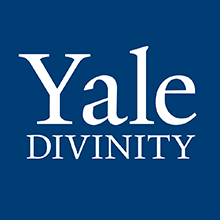 Yale Divinity School recently acknowledged its historical complicity in slavery and racism and has announced a series of actions to make the school a more just and inclusive community.
Yale Divinity School recently acknowledged its historical complicity in slavery and racism and has announced a series of actions to make the school a more just and inclusive community.
In Yale’s first century there were individuals associated with the college who enslaved people of African descent. A recently uncovered receipt documenting the purchase of a three-year-old boy named Titus by Jonathan Edwards, a Yale alumnus who today is considered one of the pre-eminent pastors and theologians in American history. Early scholarships for Yale students — “Berkeley premiums,” as they were called — were funded by profits from George Berkeley’s farm in Rhode Island, which was worked by enslaved people.
Greg Sterling, dean of the Yale Divinity School, wrote in a statement to the campus community: “Although these acts predate the 1822 establishment of the divinity school as a distinct entity at Yale, YDS is hardly innocent. These 18th-century acts are among the most egregious examples of ties to slavery by a major religious figure associated with Yale, but there is more that we must acknowledge. There’s a systemic marginalization of African-Americans during our history as an institution. The marginalization was felt by those who have been here, to say nothing about those who chose never to come. This haunts me most. We cannot rewrite history; nor can we ignore the legacy of the historical wrongs.
“We ask God for forgiveness,” Dean Sterling added. “We ask those against whom we have sinned for forgiveness. We do not ask for forgiveness without working to change our institution.”
Among other actions, dean Sterling said the Divinity School is allocating $20 million to fund 10 social justice scholarships each year for incoming students who are dedicated to social justice work. The scholarships will cover all tuition for each recipient, as well as the comprehensive fee and board fee, and provide a $10,000 annual stipend to help meet living expenses.











maybe my comprehension is lacking, so I need help in understanding this article! “Yale Divinity School acknowledged its historical complicity in slavery and racism”. So, in order to make amends, it “is allocating $20 million to fund 10 social justice scholarships each year for incoming students who are dedicated to social justice work.” In other words, it engaged in slavery of people of African descent, and racism against them. And in order to repair (as in reparations) the harm it is going to fund “10 social justice scholarships”; not to Black people (the ones who were harmed), but to anybody seeking social justice? In other words, a White person could get rewarded, a Hispanic person could get rewarded, an Asian could get rewarded for the harm done to Black American descendants of slavery? Again, I need some clarification because my understanding of the article could be totally off.
What else did you expect from Yale University? Yale University is citadel of Eurocentric thoughts, ideals, theories, and paradigms. This optically acceptable $20 million is literally a SLAP in the FACE of native born Black Americans.